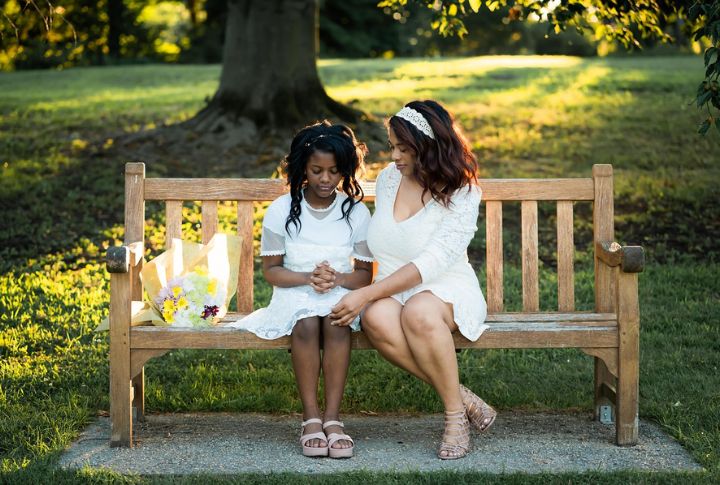
Words from a parent hit differently than criticism from anyone else. They sink in deeper, stay longer, and whisper back to you in moments of doubt. Toxic mothers often wield language that sounds protective or concerned but slowly erodes confidence and self-worth. Those phrases become part of your internal dialogue, whether you want them there or not. Here are the ones that never truly go away.
“You’re So Ungrateful”

It’s a line many kids have heard. What sounds like correction is really control, a subtle way to silence valid feelings. That message sticks. You learn to hide your wants and overcompensate with constant gratitude, just to keep affection steady.
“You’re Too Sensitive”

“You’re too sensitive” sounds harmless until it isn’t. It teaches you to second-guess every emotion, to shrink whenever you feel hurt. Over time, you stop trusting your own feelings and convince yourself that caring too much is the real problem.
“I Sacrificed Everything For You”

When your mom says, “I sacrificed everything for you,” it’s pressure. This phrase turns care into a lifelong debt. Suddenly, you owe her happiness, success, and peace of mind. You grow up chasing approval, never realizing love shouldn’t feel like repayment.
“Why Can’t You Be More Like Your Sibling?”

Hearing your mother say this cuts deep. The comparison is a lesson that love is conditional. You start believing you’ll never measure up, and this quiet resentment follows you for years, shaping how you see both yourself and family.
“Stop Crying Before I Give You Something To Cry About”

That line turns tears into a crime. Instead of comfort, you got fear. So you learned to shut it all down; to swallow emotions and smile through pain. Years later, you might still struggle to cry, even when you need to most.
“I Know What’s Best For You”

When a parent says, “I know what’s best for you,” it can feel like love. However, it means your voice doesn’t matter. You stop trusting your own judgment and start second-guessing every decision. Even as an adult, you might catch yourself waiting for permission to choose.
“You’ll Never Amount To Anything”

These words stick and play on repeat in your head every time you fail or hesitate. The phrase plants doubt that keeps growing, no matter how much you achieve. And the hardest part is proving them wrong while still believing them.
“You’re The Reason I’m Unhappy”

Nothing hurts like being blamed for someone else’s sadness. When you hear “You’re the reason I’m unhappy,” you start carrying guilt that was never yours. You learn to fix moods, smooth over conflicts, and keep everyone happy. Well, except yourself.
“I Brought You Into This World; I Can Take You Out”

This “joke” isn’t funny when you’re a kid. It’s terrifying and teaches you that love can vanish in an instant and that safety depends on obedience. Even as an adult, that fear can linger—the feeling that one wrong move means losing everything.
“You’re Just Like Your Father”

This one hits harder than it sounds. It’s not really about you, though. It’s about their old anger. Still, it leaves a mark. You start feeling defined by someone else’s past, wondering if you’ll ever be seen for who you actually are.
“Because I Said So”

Although “Because I said so” might sound like authority, it’s really the end of trust. It shuts down curiosity and teaches you that questioning isn’t safe. Growing up, you learn to stay quiet instead of seeking understanding—a habit that’s hard to unlearn.
“No One Will Ever Love You Like I Do”

It sounds like devotion, but it’s a trap. This phrase keeps you tethered to guilt and fear of abandonment. You end up believing that love always comes with control, or worse, that you don’t deserve better.
“You’ll Thank Me Someday”

It’s a line meant to sound wise. Still, what it really does is silence how you feel right now. You start pretending everything’s fine and learning to swallow pain instead of expressing it, because that’s what earns approval.
“You Owe Me For Everything You Have”

“You owe me for everything you have” turns love into a deal. Instead of feeling grateful, you feel trapped, like independence equals betrayal. Gradually, that guilt seeps in deep and makes you question whether you even deserve the happiness you didn’t “earn.”
“Don’t Embarrass Me In Public”

This one might sound like your mom just wants you to behave, yet it also tells you to shrink yourself. You start monitoring every move, afraid to be too loud or too real. The constant fear of judgment can follow you long after childhood.
“I Never Wanted Kids Anyway”

Hearing this can break something inside you. This makes you feel like you were never wanted, that your existence is an accident. That kind of message lingers and shapes how you see love and your own worth.
“You’re Lucky I Keep You Around”

The phrase might sound like a joke, but it’s not. It tells you love can be taken away at any moment. You grow up feeling replaceable, doing everything you can to prove you’re worth keeping, and that’s a heavy way to live.
“You Always Ruin Everything”

Phrases like “You always ruin everything” blur the line between behavior and identity. Instead of correcting an action, they condemn the person. The distinction matters because once internalized, it turns everyday errors into proof of personal failure that can linger for years.
“Can’t You Take A Joke”

While this one sounds lighthearted, it’s really a way to dismiss your feelings. You learn to laugh through hurt and pretend things don’t bother you. Over time, you stop trusting your own emotions, confusing cruelty for humor and silence for strength.
“You’re Imagining Things”

When you’re told “You’re imagining things,” you begin to question not just your memory but your entire reality. It’s a slow unraveling of confidence, one that makes you second-guess even obvious truths. The result is lifelong hesitation where certainty should have been.

